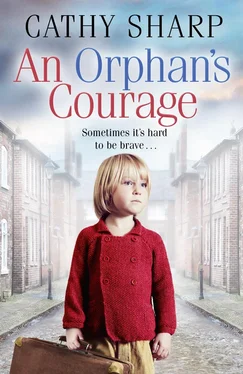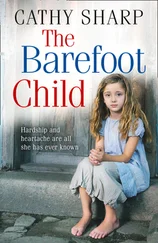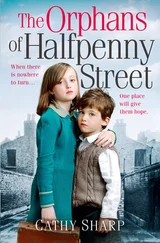‘Well, I shall be sorry to lose you, Hannah.’ Sister Beatrice frowned over the top of her glasses at the young woman sitting in the chair at the other side of her desk. She put down the newspaper she’d been reading, an article about the launch of a campaign to stop smoking, because of new research into cancer diseases thought related to the practice. As always she wore the dark grey habit of a nun with a white starched apron and simple headdress, a heavy silver cross and chain about her neck. ‘I must admit I’ve come to rely on you as one of my most trusted staff – and it’s so difficult to find girls who want to work here these days …’
‘I’ve loved working with you at St Saviour’s,’ the carer said and looked genuinely sorry. ‘But this is a wonderful chance for my husband to have his own business. We’ll be moving across the river and he’ll need help in the shop – so what with that and having another baby …’ She placed her hands on her bump and smiled. ‘I just shan’t have the energy or the time …’
‘Oh, I understand perfectly and I wish you well in your new life,’ Beatrice agreed. ‘Your husband and your family come first of course. It’s just that I shall need to find someone to take your place when you leave.’
‘Well, I do know of someone looking for her first job. She’s just left school and her neighbour asked me if she thought Jinny might be taken on here as a kitchen help, but she’s an honest girl and bright. I think you might like her – and Nancy was only fifteen when she started, wasn’t she?’
‘That was rather different,’ Beatrice frowned at her, because Nancy was a special case. ‘This girl is hardly old enough to be given the care of children, but I suppose she could be taken on as a girl of all work. If she is willing to do kitchen work, as well as anything else she’s asked, that might solve a part of our problems. We’ve had a succession of girls coming for a few weeks and then leaving in the kitchens since Muriel retired last Christmas. Unfortunately, Mrs Davies can be a little difficult …’
‘Yes,’ Hannah replied ruefully. ‘I’ve run afoul of her tongue a few times, but she’s just finding her way and Sandra says her bark is worse than her bite.’
Thank goodness for Sandra, who had become a friend as well as a colleague since she joined their staff! Beatrice relaxed mentally as she thought of the young woman who had begun as a part-time secretary and occasional carer after her stint in prison almost two years previously. Sandra had been imprisoned after a farcical trial on trumped-up evidence and only the perseverance of her friends had got her free with her name cleared. In truth she owed her freedom mainly to Ikey, the man who was now her husband; Sandra owed him far more because he’d rescued her children – Archie Miller from an uncertain fate on the streets and June from the clutches of unsuitable foster parents. Beatrice had employed her without a reference and given her a temporary home here at St Saviour’s in the nurses’ home until she’d married, and Sandra had more than repaid her since with her friendship and her hard work.
As Ikey’s wife – or Nathaniel Milvern as he was known in his professional life, as a police officer – Sandra had no need to work but she’d continued to come into St Saviour’s every day. They’d married very quietly in the spring of 1956, because Ikey was still recovering from the brutal attack on him. However, he was now back at work and involved in several projects aimed at helping London’s unfortunates who lived on the streets.
‘Yes, I believe Sandra can manage her,’ Beatrice nodded, and glanced through her diary. ‘Very well, send this young woman to see me … the day after tomorrow in the morning at ten thirty. I shall ask Sandra to join me and we’ll see. If this girl … what was her name again?… If she is suitable we’ll give her a chance.’
‘Jinny Hollis,’ Hannah said and stood up. ‘She’s a pretty girl, sensible and pleasant, but she’s had a terrible home life for years, Sister, but I know you won’t hold that against her. She needs a job and somewhere to live, so her neighbour told me. Had she been brought in when she was younger I know you would’ve taken her in – as you do all the kids in trouble.’
‘I take as many as I can,’ Beatrice said and sighed. ‘Unfortunately, we’re only a halfway house now and many of our children are moved on to the new place after just a few weeks. I regret that we were forced to give up the one wing of St Saviour’s, which means we only have room for sixty orphans at the most, but I suppose it is progress … or so they tell me …’
‘You haven’t thought of taking a position at Halfpenny House in Essex?’ Hannah asked, on her feet now and lingering at the door.
‘No, I think not,’ Sister shook her head emphatically. ‘I’ve spent the last twelve years or more here in Halfpenny Street at St Saviour’s; it’s where I belong and I have no desire to move.’
‘It wouldn’t be the same without you,’ Hannah said, hesitated, and then offered shyly, ‘I shall miss working with you and Wendy and Sister Rose and the others …’
Beatrice inclined her head but said no more as the carer left. She’d said all she had to say and since the parting was inevitable there was nothing to do but accept it. She’d lived too long and suffered too many partings, each of which left a little shadow on her heart, but God gave her strength to carry on with her work. Her fingers clasped the heavy silver cross she wore on a long thick chain and she winced as she felt stiffness and pain; it was arthritis, she imagined, and it was gradually working its way through her body: shoulders, back, neck and now her hands. She flexed her fingers trying to relieve the pain and felt it ease; exercise helped. Beatrice had learned that from watching her father, who had been a butcher and used to working in cold conditions and standing for long hours. He’d developed a severe form of the disease as he’d grown older but he’d been too stubborn to give in and had carried on working until he died … of a heart attack.
Beatrice shook her head, dismissing old memories, which could have no bearing on her life now. She’d taken her vows after tragedy drove her to despair but for years now she’d led a busy, interesting life here at St Saviour’s, looking after the children given into her care. It was a demanding job sometimes, needing all her strength and patience to carry her through, but it was her life. Indeed, she did not know what she would do if the job were no longer hers. A return to the convent would be unfortunate; here in St Saviour’s she’d become used to warmth and the comfort of her office and her room in the nurses’ home, and she ate well – better than her fellow nuns did at the convent, she knew. Beatrice remembered how cold it had been in the small impersonal cell that had been hers when she first became a nun. Over the years her room at St Saviour’s had acquired some small comforts, a few books, a picture or two – mostly of gardens. She did appreciate gardens, though it was years since she’d had one to tend, as well as the little things the children had made for her, all of which she treasured. At the convent such treasures, if not exactly forbidden, would not be understood; she was supposed to have given up all worldly pleasures, but she feared that her years in nursing had somehow made her fonder of her personal comforts than was right.
Perhaps fortunately for her turn of thoughts, the telephone shrilled and she picked it up, smiling as she heard the voice at the other end.
‘Sergeant Sallis, how nice to hear from you again; I thought you’d forgotten us.’
‘I’m pleased to say things have been quiet for a while, but we had two children brought in this morning – found wandering down by the Docks, both of them filthy and hungry, and the boy has been beaten quite recently …’
Читать дальше












